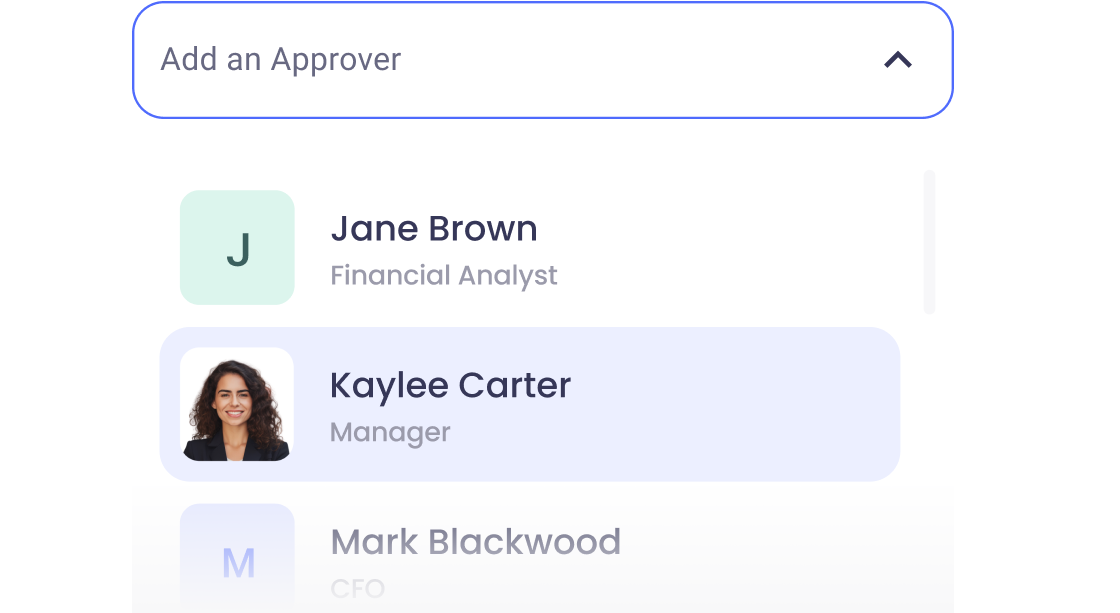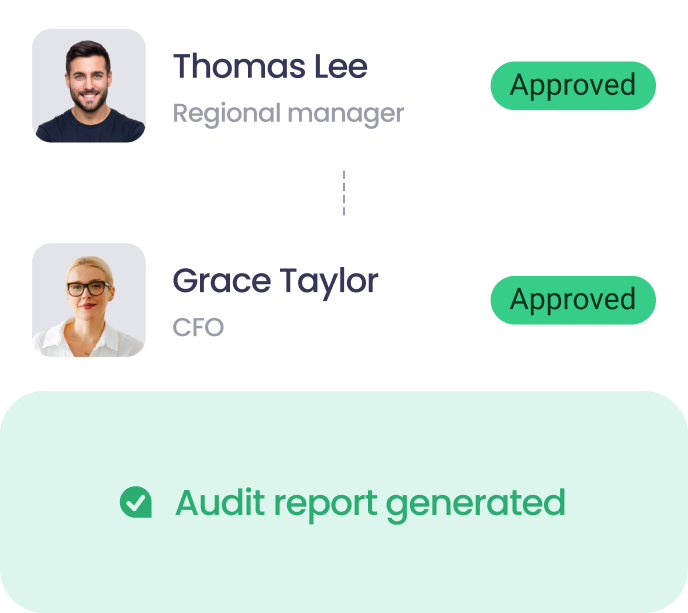
Accounts payable outsourcing: pros, cons & when it makes sense
- What is accounts payable outsourcing?
- Why businesses outsource accounts payable
- How accounts payable outsourcing works
- Benefits of accounts payable outsourcing
- Drawbacks of accounts payable outsourcing
- When accounts payable outsourcing makes sense
- Common mistakes when outsourcing AP
- How to choose the right AP outsourcing provider
- Special cases to consider in AP outsourcing
- Accounts payable outsourcing vs. accounts payable automation
- Why AP automation is the smarter long-term choice
- FAQs
Is your finance team under pressure to cut costs, move faster, and lower risk whilst standardising your processes? You’re not the only one. Many businesses are rethinking how they handle accounts payable operations. Some outsource the work, while others automate it. Both can save time and improve accuracy, but in very different ways.
In this guide, you’ll learn what accounts payable outsourcing is, how it works, its pros and cons, and when it makes sense for your business. You’ll also see how it compares to automation and why many teams now choose a technology-first approach.
• AP outsourcing is best for small teams, seasonal operations and growing companies needing extra capacity.
• Many finance teams now view automation as the smarter next step after outsourcing.
• Even when outsourced, your team still owns accuracy and approvals
• The right outsourcing partner should fit your systems, goals and compliance needs
• Outsourcing helps reduce admin work and handle invoice peaks but is best for short-term efficiency.
What is accounts payable outsourcing?
Accounts payable outsourcing means you hire an external company to manage some or all of your AP tasks, including invoice capture, data entry, matching, approvals, payments, and reporting.
The provider handles the daily work, often within your existing accounting system. You still set the rules, control approvals, and keep overall responsibility for payments.
Why businesses outsource accounts payable
Businesses outsource accounts payable for a few key reasons:
-
Lower costs. Outsourcing cuts staff and admin expenses
-
Time savings. It frees your team from manual data entry and chasing invoices
-
Access to expertise. Providers bring trained staff and proven processes
-
Scalability. You can scale services up or down as invoice volumes change
-
Accuracy and compliance. Outsourced teams follow strict quality and security standards
-
Global reach. Larger providers handle multiple currencies and tax rules, which helps international operations
For example, a seasonal retailer might outsource AP during peak months to manage invoice spikes without hiring temporary staff.
How accounts payable outsourcing works
Here’s how the accounts payable outsourcing process works:
Most providers now use automation for invoice capture, PO matching, and approval tracking. You still set the rules and approve payments.
Understanding this workflow helps you decide if outsourcing fits your setup and business goals.
Benefits of accounts payable outsourcing
Outsourcing can make your AP process faster, cost-efficient, and easier to manage. Here’s how:
According to Ardent Partners State of ePayables Report, top-performing AP teams process invoices in just 2.9 days (compared to a global average of 8.5 days). Outsourcing can help close that gap, especially when paired with automation.
Drawbacks of accounts payable outsourcing
The main trade-off is less control and greater dependency on your provider.
These risks don’t mean outsourcing is a bad choice, they just need managing. Clear SLAs, open communication, and regular reviews keep accountability in place.
When accounts payable outsourcing makes sense (and when it doesn’t)
Outsourcing works best when your current setup limits speed or scalability. It’s less useful if you already run automated workflows or manage sensitive data internally.
When it makes sense:
- You process a high volume of invoices with a small team
- You rely on manual or paper-based AP processes
- You’re expanding into new markets and need compliance support
- You face seasonal peaks and need extra capacity
When it doesn't:
- You need real-time visibility of spending and performance
- You already use automation tools that cut manual work
- You manage sensitive or regulated data in-house
Outsourcing can fill short-term gaps, but it’s not a long-term fix for poor systems or inconsistent processes.
Common mistakes when outsourcing AP
Even when outsourcing fits your business, execution makes the difference. Here’s where we see companies often slip up:
- Choosing a provider based only on price
- Skipping clear success metrics
- Failing to train internal approvers or budget owners
- Handing over too much control and losing visibility
- Ignoring performance reports
The key to avoiding these common mistakes is treating outsourcing like a partnership. Keep ownership of results, not just the workload.
How to choose the right AP outsourcing provider
The right partner can make or break your outsourcing success. Here are seven key things to look for:
Don’t choose based on price alone. The best partners are reliable, transparent and aligned with how your business works.
Special cases to consider in AP outsourcing
Some accounts payable setups are more complex than others. If your business operates across multiple entities, countries, or industries, outsourcing needs extra planning and tighter control.
-
Multi-country operations. Each country has its own tax, VAT, and e-invoicing rules. Some require local reporting or access through government portals. Your provider must follow these rules to prevent delays or penalties.
-
Industry regulations. Sectors like healthcare, construction, and non-profits often need stricter documentation and approval trails. Confirm that your provider can meet those standards.
-
High-volume invoices. Manufacturers, retailers, and utilities process thousands of invoices every month. Choose a provider that supports batch processing, PO matching, and automated exception handling.
-
Cross-border payments. If you pay suppliers in different currencies, you need strong controls for exchange rates, sanctions, and international compliance. Check how your provider manages these before onboarding.
-
Procure-to-pay integration. If your business uses connected procurement or ERP systems, make sure your provider can integrate with them so data flows smoothly between purchasing and AP.
Spending time on these checks before signing a contract prevents errors, compliance issues, and costly rework later
Accounts payable outsourcing vs. accounts payable automation
Once you understand how outsourcing works, it’s worth comparing it with automation. Both approaches aim to reduce manual work, speed up invoice processing, and improve accuracy – but they do it in very different ways.
Outsourcing focuses on people, while automation focuses on technology. Knowing how each one works helps you decide which is the better fit for your team today and which will support your long-term goals.
Accounts payable outsourcing
Outsourcing means you hire people outside your business to manage invoice processing. It’s often quick to set up and reduces internal workload right away.
You still decide how invoices are approved, but day-to-day work (like data entry, matching, and chasing) is processes externally. This saves time but creates dependency on your provider. You rely on their systems, security, and reporting.
Outsourcing works best if your main goal is to clear backlog, manage seasonal peaks, or fill internal skill gaps. But it’s less flexible when you want full visibility or tighter control over data.
Accounts payable automation
Automation replaces manual work with software that runs inside your own systems. It handles invoice capture, PO matching, approvals, and reporting automatically.
Automation keeps data, control, and visibility in-house. It also costs less over time. In fact, a study by the Institute of Finance and Management found that automation reduces processing costs by up to 60% compared to manual or outsourced methods.
How accounts payable and accounts receivable outsourcing work together
When both accounts payable and accounts receivable outsourcing are in place, finance teams start to see the full picture. Payments, collections and supplier updates move faster, and reconciling the two sides becomes simpler.
But there’s still a catch. Even with both functions managed externally, visibility often comes after the fact, not in the moment. That’s why more teams are turning to automation to connect payables and receivables in one continuous flow where data moves instantly and decisions happen in real time.
Why automation is the smarter long-term choice
Outsourcing solves short-term problems like heavy workloads or limited staff. But if you want a system that scales as you grow, automation might be a better choice.
Automation gives you control, accuracy, and visibility without relying on external teams. It frees up time, reduces costs, and supports steady growth as your business expands. Here’s how:
- Visibility: You can see every invoice and approval in real time.
- Speed: Approvals move instantly, not through emails.
- Accuracy: Fewer human errors and stronger audit trails.
- Compliance: Every step is logged and review-ready.
- Scalability: Add users, entities or locations without extra headcount.
With ApprovalMax, you can automate approvals for bills, purchase orders and credit notes in Xero, QuickBooks, and NetSuite. Our software enforces vendor checks, applies budget limits and provides a full audit trail – all without the need for outsourcing. This means you keep control, gain visibility, and reduce costs.
Book a demo to see how automation can replace manual AP work and help your team close faster with fewer errors.
FAQs
What accounts payable tasks are outsourced?
Most providers handle the everyday AP work such as collecting invoices, entering data, matching purchase orders, routing approvals, making payments, and preparing reports. You can outsource all of these tasks or just the parts your team struggles to manage in-house.
How much does accounts payable outsourcing cost?
The cost depends on how many invoices you process and what level of service you need. Most providers charge a set fee per invoice or offer a monthly package. Prices are usually lower than hiring full-time staff, but make sure to ask about any extra charges for rush payments or complex approvals.
How to shift from in-house to outsourcing your accounts payable?
Start by mapping your current AP process and deciding which parts you want to outsource. Then choose a provider that can work with your accounting system and follow your approval rules. During onboarding, share clear guidelines, test reporting accuracy, and keep communication open until everything runs smoothly.
Is accounts payable outsourcing suitable for small businesses?
Yes. Smaller companies often outsource AP to save time and avoid the cost of hiring extra staff. It can also help them handle busy periods or improve accuracy without investing in new systems. The key is choosing a provider that understands small business needs and offers flexible pricing.
What’s the difference between accounts payable outsourcing and automation?
Outsourcing means people outside your company handle AP work for you. Automation uses software to do it inside your own system. Both can make processing faster and more accurate, but automation keeps control, visibility, and data in-house. Many teams use outsourcing first, then move to automation as they grow.
Ready to Simplify Your Approval Process?
Justin Campbell, an experienced accountant with a decade at Xero, blends his deep understanding of finance and technology to simplify processes. He uses his expertise to help businesses work smarter, bringing precision and innovation to every initiative.
Set up a system of checks and balances for your financial operations.
Multi-step, multi-role approval workflows for financial documents.

Auto-generated audit reports for each approved item.

Get alerts for fraudulent activity and protect against it happening.
Leave printing in the past with fully digitised workflows.





